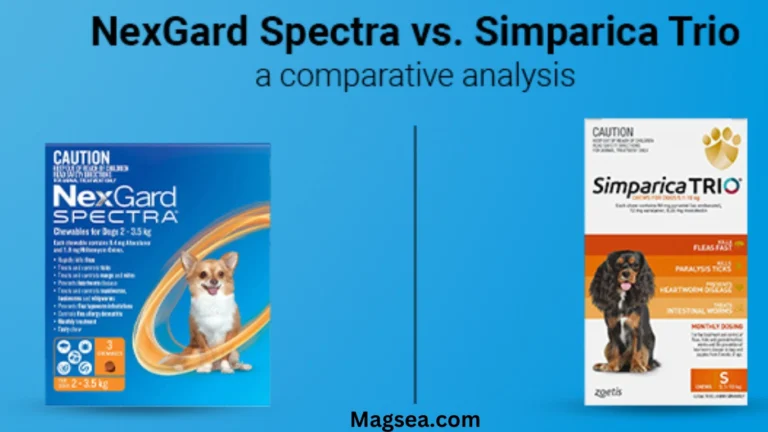Can Dogs Eat Gummy Bears? Risks, Safety, and Alternatives

Our dogs are more than just pets; they are beloved members of the family. It’s common for us to want to share the treats we love with them. But can dogs eat gummy bears? This is a question many dog owners ponder, especially when faced with those irresistible puppy eyes. This article will discuss whether gummy bears are safe for dogs, the potential health risks associated with these sugary treats, and what to do if your dog accidentally consumes gummy bears.
Can Dogs Eat Gummy Bears?
The simple answer to “can dogs eat gummy bears” is no. While gummy bears might seem harmless, they contain ingredients that can be quite dangerous for dogs. The high sugar content alone can pose health risks, but some gummy bears are even more hazardous because they contain artificial sweeteners like xylitol, which is highly toxic to dogs. Here, we will explore why gummy bears are a poor choice for your dog and what safer alternatives you can consider.
Why Are Gummy Bears Harmful to Dogs?
1. High Sugar Content
Gummy bears are made primarily of sugar, which is unhealthy for dogs. A dog’s digestive system is not equipped to handle high amounts of sugar. Consuming sugary treats like gummy bears can lead to a variety of health issues, including obesity, dental problems, and even diabetes if given regularly.
Even if your dog manages to eat one or two gummy bears without immediate harm, regular intake can lead to severe health consequences. Obesity in dogs is linked to issues like osteoarthritis, heart disease, and decreased lifespan. Feeding your dog high-sugar treats increases their calorie intake and can contribute to these long-term health problems.
2. Artificial Sweeteners
One of the biggest concerns when discussing “can dogs eat gummy bears” is the presence of xylitol in many sugar-free varieties. Xylitol is a common artificial sweetener that’s extremely toxic to dogs. Even a small amount of xylitol can cause a sudden insulin spike in a dog’s body, leading to dangerously low blood sugar levels, a condition known as hypoglycemia.
Symptoms of xylitol poisoning in dogs include vomiting, loss of coordination, seizures, and in severe cases, liver failure. Xylitol is found not only in some gummy bears but also in sugar-free gum, mints, and other candies. If your dog consumes anything containing xylitol, immediate veterinary care is essential.
Health Risks of Feeding Dogs Gummy Bears
The risks of feeding gummy bears to dogs are numerous and vary in severity depending on the quantity and type of gummy bears consumed. Below is a table summarizing the health risks associated with gummy bear consumption in dogs.
| Risk | Description |
| Obesity | High sugar content contributes to weight gain and related health issues. |
| Diabetes | Sugar-laden treats increase the risk of diabetes over time. |
| Dental Problems | Sugar leads to tooth decay and gum disease in dogs who don’t brush regularly. |
| Hypoglycemia | Xylitol causes a dangerous drop in blood sugar levels in dogs. |
| Gastrointestinal Issues | High sugar and sticky texture may cause stomach upset, vomiting, and diarrhea. |
| Choking Hazard | Dogs may choke on small, sticky gummy bears, especially if they eat them quickly. |
| Liver Failure | Xylitol can cause irreversible liver damage if ingested in large quantities. |
These risks emphasize why it’s crucial to keep gummy bears and other candies out of your dog’s reach.
Also, Read Lash Buddy Reviews: Are Self-Adhesive Lashes Worth It?

How to Keep Your Dog Safe from Gummy Bears?
If you’re wondering, “can dogs eat gummy bears,” it’s essential to understand how to prevent your dog from getting access to these treats. To ensure your dog’s safety, store all candies, including gummy bears, in secure locations that your dog cannot access. Cabinets, drawers, or cupboards that are high enough to prevent your dog from reaching are ideal storage spots.
It’s also important to be mindful of bags, backpacks, and purses, as dogs are known to rummage through these items. Kids’ backpacks and lunch boxes, in particular, can be attractive to dogs due to the smell of food. Keeping bags out of reach will reduce the chances of accidental ingestion.
If you’re tempted to give your dog a special treat, remember that there are safer alternatives specifically designed for canine consumption.
What to Do if Your Dog Eats Gummy Bears?
If your dog consumes gummy bears, assess the situation immediately. Check the ingredients list if possible. If the gummy bears contain xylitol, it’s vital to seek veterinary care immediately, as xylitol poisoning can progress quickly. Even if the gummy bears are not sugar-free, consuming too many can cause gastrointestinal upset.
Watch for any symptoms of distress, including vomiting, diarrhea, lethargy, and loss of coordination. These signs could indicate a reaction to the high sugar content or an underlying gastrointestinal issue. If symptoms appear, take your dog to the vet promptly for evaluation.
Frequently Asked Questions
Can Dogs Eat Gummy Bears Safely if They Are Sugar-Free?
No, sugar-free gummy bears are even more dangerous for dogs than regular ones. Sugar-free varieties often contain xylitol, a highly toxic substance for dogs, which can cause hypoglycemia and liver failure even in small amounts.
How Much Sugar Is Too Much for Dogs?
Dogs do not process sugar well, and even small amounts can cause stomach upset. Regular consumption of sugary treats can lead to obesity, diabetes, and dental problems in dogs.
Are There Dog-Friendly Alternatives to Gummy Bears?
Yes, many pet stores offer dog-safe treats that satisfy your dog’s sweet tooth without the health risks. Look for treats made specifically for dogs, which are formulated to be safe and nutritious.
Can Gummy Bears Cause a Dog to Choke?
Yes, the small size and sticky texture of gummy bears can pose a choking hazard, especially for small dogs or dogs that tend to gulp down treats without chewing.
Conclusion
In summary, when considering “can dogs eat gummy bears,” the answer is a clear no. Gummy bears, with their high sugar content and potential presence of xylitol, are not safe for dogs. The risks associated with gummy bears include obesity, diabetes, dental problems, and in the case of xylitol, severe poisoning that can lead to hypoglycemia and liver failure.
While it may be tempting to share your favorite treats with your dog, it’s essential to prioritize their health and well-being. Opt for dog-safe treats that are both nutritious and delicious. These alternatives ensure that your furry friend can enjoy a snack without the potential health risks posed by human candies.
Remember, keeping gummy bears and other candies out of your dog’s reach is the best way to prevent accidental ingestion.
Also, Read Iam Tongi Weight Loss: From Idol to Wellness Advocate






